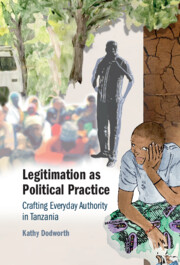Book contents
- Legitimation as Political Practice
- Legitimation as Political Practice
- Copyright page
- Dedication
- Contents
- Figures
- Tables
- Foreword
- Preface and Acknowledgements
- Abbreviations
- Introduction
- 1 Legitimacy and Legitimation
- 2 Practicing Legitimation
- 3 ‘We Go Deeper’
- 4 ‘In and Out’
- 5 ‘I Was Chosen; It’s the Work That’s Voluntary’
- 6 ‘These People, They Just Sit!’
- 7 ‘Reporting Has All Sorts of Issues!’
- Conclusion
- Appendix A: Interviews
- Glossary
- References
- Index
- References
References
Published online by Cambridge University Press: 05 May 2022
- Legitimation as Political Practice
- Legitimation as Political Practice
- Copyright page
- Dedication
- Contents
- Figures
- Tables
- Foreword
- Preface and Acknowledgements
- Abbreviations
- Introduction
- 1 Legitimacy and Legitimation
- 2 Practicing Legitimation
- 3 ‘We Go Deeper’
- 4 ‘In and Out’
- 5 ‘I Was Chosen; It’s the Work That’s Voluntary’
- 6 ‘These People, They Just Sit!’
- 7 ‘Reporting Has All Sorts of Issues!’
- Conclusion
- Appendix A: Interviews
- Glossary
- References
- Index
- References
- Type
- Chapter
- Information
- Legitimation as Political PracticeCrafting Everyday Authority in Tanzania, pp. 218 - 247Publisher: Cambridge University PressPrint publication year: 2022



